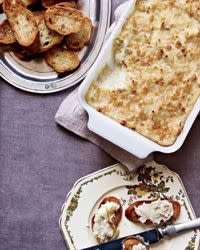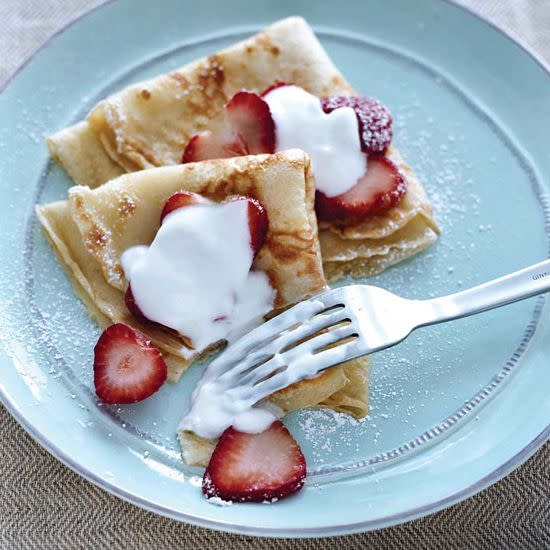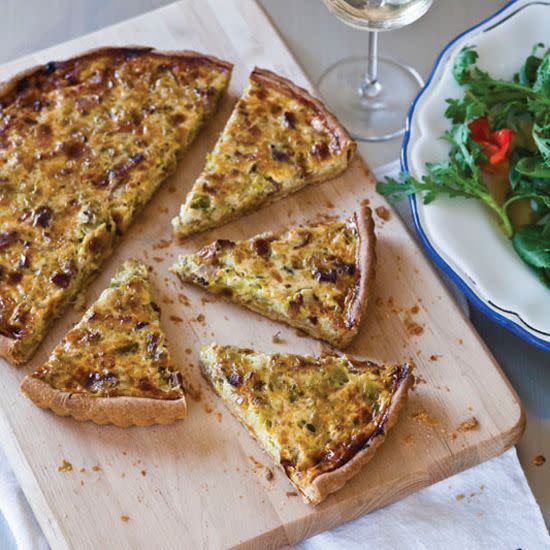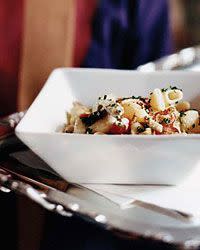Jacques Pepin's Best French Classics

In this article:
"What is it like to edit Jacques Pépin?"
I can't begin to tell you how often I get asked that question.
In a word, humbling.
It's also intimidating, exhilarating and occasionally exasperating. More than anything, though, wrestling with the two-foot-high, 2,449-page manuscript that is Jacques's life's work has proved to be the biggest learning experience of my career.
This is not because I have learned how to bone a chicken—something Jacques Pépin does with almost comic rapidity—or because I have acquired formidably good recipes, though of course, I have. Rather, working with Jacques has taught me (sometimes painfully) the most valuable lesson an editor can learn: Authors usually know a great deal more about their subject—and what their readers need—than editors do.
Editing Jacques Pépin is unlike editing any other celebrity chef. Many chefs have recipe testers and co-writers; Jacques is a one-man band, creating every recipe himself, writing every word and drawing hundreds of illustrations. That he's able to do this in between cooking at benefits, filming TV shows and traveling boggles the mind.
When you edit a man who has been cooking professionally for more than 60 years (since he was 13)—a man who has been the personal chef not only to Charles de Gaulle but to two other French prime ministers, and who has cooked at the most prestigious restaurants in the world—it's imperative to get into the office early. Long days are necessary to keep pace with Jacques. No detail is too minuscule for his attention: He tweaks recipes at every stage, making them simpler. He is a perfectionist. "I can't breathe!" he cried in mock panic upon seeing a book cover that looked great to me. It looked even better when the designer moved the type off his chest.
RELATED: Videos and Recipes From Jacques Pépin
Our first task, which had to be done immediately, since Jacques was about to film his public television show based on the book, was to trim the manuscript from 1,500 recipes to about 750. Initially, he balked. Why not simply raise the price a bit? A more rigorous selection, I argued, would improve the book. I assured him I did not intend to drop the classics. Once persuaded, he moved with astonishing speed. A day later, the excised recipe list was in my in-box.
Unlike most chefs, who prize their most difficult creations, Jacques Pépin immediately jettisoned esoterica like rolled headcheese. Yet we did not always agree on the essentials. I voted against the time-consuming chicken ballottine with red-rice stuffing, but Jacques insisted that it was worth every second. It stayed. I restored a few recipes he had deleted, like chocolate, walnut and cherry cookies. Who wouldn't want those?
Although we tend to associate French cooking with luxury, Jacques's most marked characteristic is frugality. The ingenious use of leftovers and incidental ingredients is something he learned from his mother. It was also a hard lesson from growing up in wartime France. When I asked him to drop the chicken-hearts-and-gizzards soup, he responded: "I disagree strongly with your desire to eliminate it. It is delicious, nutritious, inexpensive and different."
Other chefs leave the details of line editing to their staff; Jacques Pépin answered every question himself with the help of his assistant, Norma Galehouse, whom he calls his "Ariadne to guide me through these pages." But after six chapters covered with hundreds of queries attempting to standardize recipes from various periods in his life, Jacques's patience was exhausted. He vented his frustrations in a three-page, single-spaced letter. "I know there is a great deal of 'cleaning' to be done," he wrote. "Now I am in the second washing, which seems to be more radical than the first. I feel even cleaner now, but I am starting to disappear. I can foresee the book, after the third and fourth wash, as one single recipe with no more than five ingredients, each of which can be substituted for the other; a recipe with no originality, no surprises, nothing unusual, bland and insipid." I backed off.
Our most intense arguments focused on whether to illustrate techniques with photographs. Jacques was adamant: Photos were old-fashioned and hard to follow. He proposed a DVD. I protested. Jacques pushed back, saying his longtime friend and producer Susie Heller could help. Jacques prevailed. The result is a three-hour virtual cooking academy.
In the end, though, it's the recipes that make a great cookbook. I've replaced my apple pie (and maybe all of my pies) with Jacques's simple free-form galette; the foolproof dough comes together in a food processor in 10 seconds. And his duck à l'orange is not only the single best dish I've had all year, but it solves a problem few duck recipes do: how to make enough to serve a small group. As with his other recipes, my experience is that if you make this once, you'll make it forever.
Recipes adapted from Essential Pépin: More Than 700 All-Time Favorites from My Life in Food by Jacques Pépin, to be published by Houghton Mifflin Harcourt in October 2011. Copyright © 2011 by Jacques Pépin. Reprinted by permission. All rights reserved.
Jacques Pépin on Wine Pairings
"When I was a child, we always had wine on the table, no matter how simple the meal. The wine had no special identity; it was just "the wine," from the cellar cask. The rules were general: white with the first course, red with the main course."
"Today, when I pair food and wine, I start with the food. If I have a beautiful roasted bird, I might choose a Cabernet or Pinot Noir, or maybe a Syrah, depending on the sauce and what is in my cellar."
"My wife and I mostly like simple wines: Sauvignon Blanc from France, Napa, Italy or Chile; Alsatian Riesling or Grüner Veltliner; rosé in summer. As for reds, we drink Pinots from Oregon or Burgundy and Cabernets from Bordeaux or Napa. For everyday, we like Beaujolais, Grenache or Syrah, and we like a lot of it! It's a family tradition: We would never consider having a meal without wine."

Video: Jacques Pépin Recipes and Cooking Tips
More Delicious French Recipes:

© Marcus Nilsson These delicious French pancakes are topped with a creamy sauce that’s sweetened with a splash of Bonterra Muscat wine.

© Quentin Bacon

© Pierre Javelle
